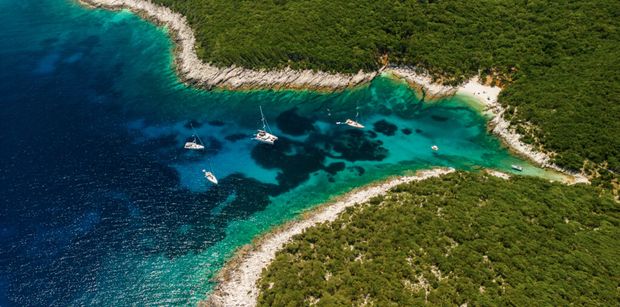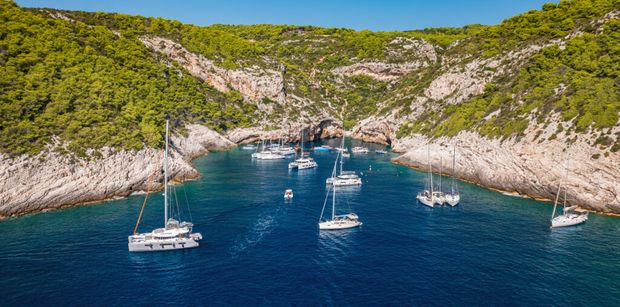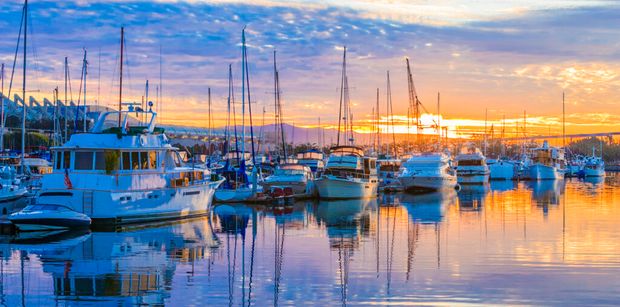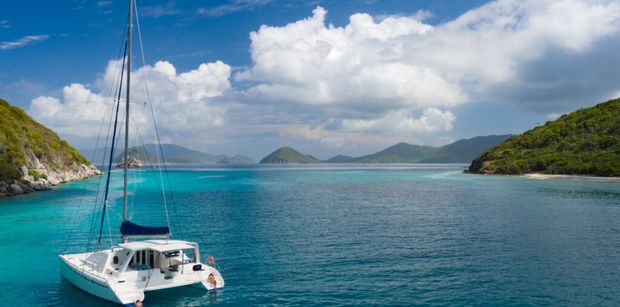A yacht charter offers the perfect opportunity for an unforgettable, family-friendly vacation this summer. At Boatbookings, we understand the importance of quality time together while instilling eco-values from an early age. That’s why our fleet of greener crewed charter catamarans is family-friendly.
Our child-friendly yachts check every box, from enhanced safety features and ample play space to overflowing toy boxes and chefs catering to all ages. We also go a step further by offering engaging eco-activities and more sustainable practices that will inspire the next generation.
Here, we have put together some of the ways you can have a greener family-friendly charter in the Mediterranean:
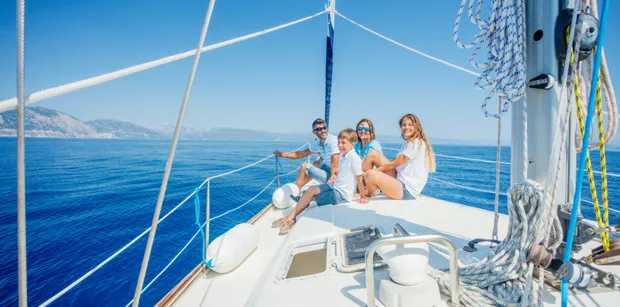
Marine Life Education
While onboard in the Mediterranean this summer, there are plenty of activities to get your children excited about marine life and preserving it. You can start this process by using mobile apps to identify tropical fish, dolphins, turtles, and other creatures you encounter. The crew onboard a crewed charter catamaran can also teach children about marine habitats and how to be responsible visitors to the ocean, following the “no trace” principles. There are lots of Marine Protected Areas (MPAs) throughout the region, from Greece and Croatia to the French Riviera and the Italian islands, where you can adhere to the strcit rules and regulations working to protect the habitats.
Beach Clean Ups
Participating in a beach clean-up during your boat charter is a rewarding experience, perfect for all ages. Collecting litter and debris allows families to directly contribute to protecting the surrounding ecosystems. Initiatives such as these can help families feel empowered knowing they have been part of the solution to protecting our oceans and coastlines.
Eco-Friendly Water Fun
Children and adults alike on a crewed charter love the toy box. There are a whole host of greener toys you can play on, contributing to more eco-friendly boating and steering clear of the fuel-guzzling water toys and opting for the greener versions, such as the electric-powered toys or even the human-powered ones such as paddleboarding and kayaking while onboard. While ashore, the crew can also arrange responsible activities contributing to the local economy and supporting environmental and conservation initiatives.
Better Boating Practices
Our selection of greener crewed catamarans offers a greener charter experience for you and your family. These boats are a great platform to explain the best practices. The crew can educate everyone about the renewable energy sources being used, such as hybrid electric motors and solar panels. Onboard, you can get invovled in the responsible waste management programs and using the eco-friendly products.
Book Today!
If you are interested in a family-friendly boat charter, contact one of the Boatbookings team members to discuss this further. We have a range of greener crewed catamarans with still some available for this summer’s Mediterranean season. Get in touch today!

